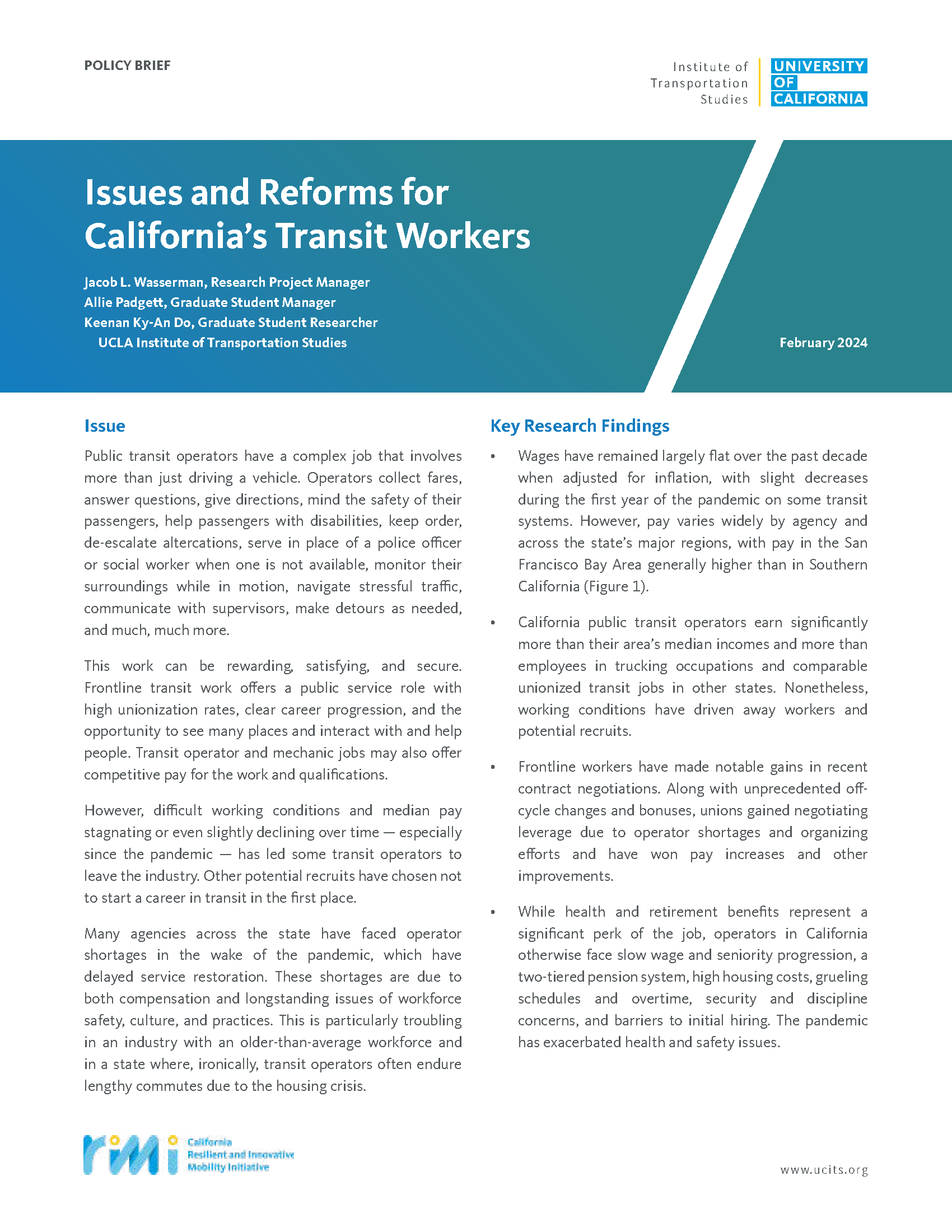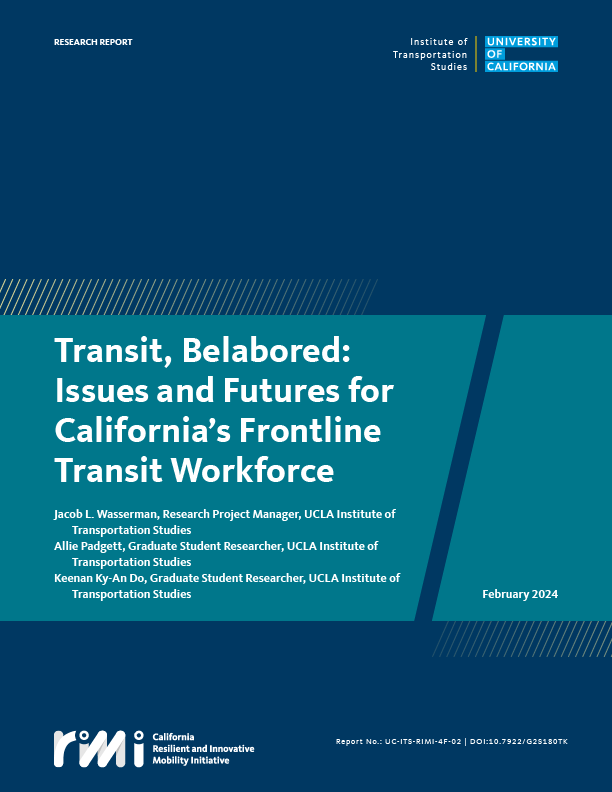Project ID:
LA2120Year Completed:
2024Funding Source:
Resilient and Innovative Mobility InitiativeProject Description
Frontline transit work can be satisfying and secure—but also stressful or unsafe. Many agencies across the state lacked transit operators in the wake of the pandemic, delaying service restoration. Interviews, wage data, and other sources demonstrate that these shortages were due to both compensation issues and longstanding issues of workforce safety, culture, and practices.
Wages have stagnated over the past decade, though California operators earn more than their area’s median incomes, trucking employees, and comparable transit jobs in other states. Workers have made notable gains in recent contract negotiations. Nonetheless, working conditions, which worsened during the pandemic, have driven away existing workers and potential recruits. While health and retirement benefits represent a significant perk of the job, operators face slow wage and seniority progression, two-tiered pensions, high housing costs, grueling schedules and overtime, and security and discipline concerns, atop daunting initial barriers to hiring.
Raises alone are necessary but not sufficient: pay is generally lower than necessary to attract and retain needed employees—and recent increases in pay and hardships in other aspects of the job point to the importance of factors beyond wages alone. Agencies, advocates, and unions will need to rethink and expand transit operations funding, raise wages, and implement a variety of reforms: reducing hiring hurdles, expanding outreach, making scheduling fairer, improving facilities and support offerings, removing enforcement duties from operators, and creating career pathways for advancement. Ultimately, the pandemic underscored that transit workforce issues are transit rider issues.
Publications

Jacob L. Wasserman (PI)
Research Team
Program Area(s):



